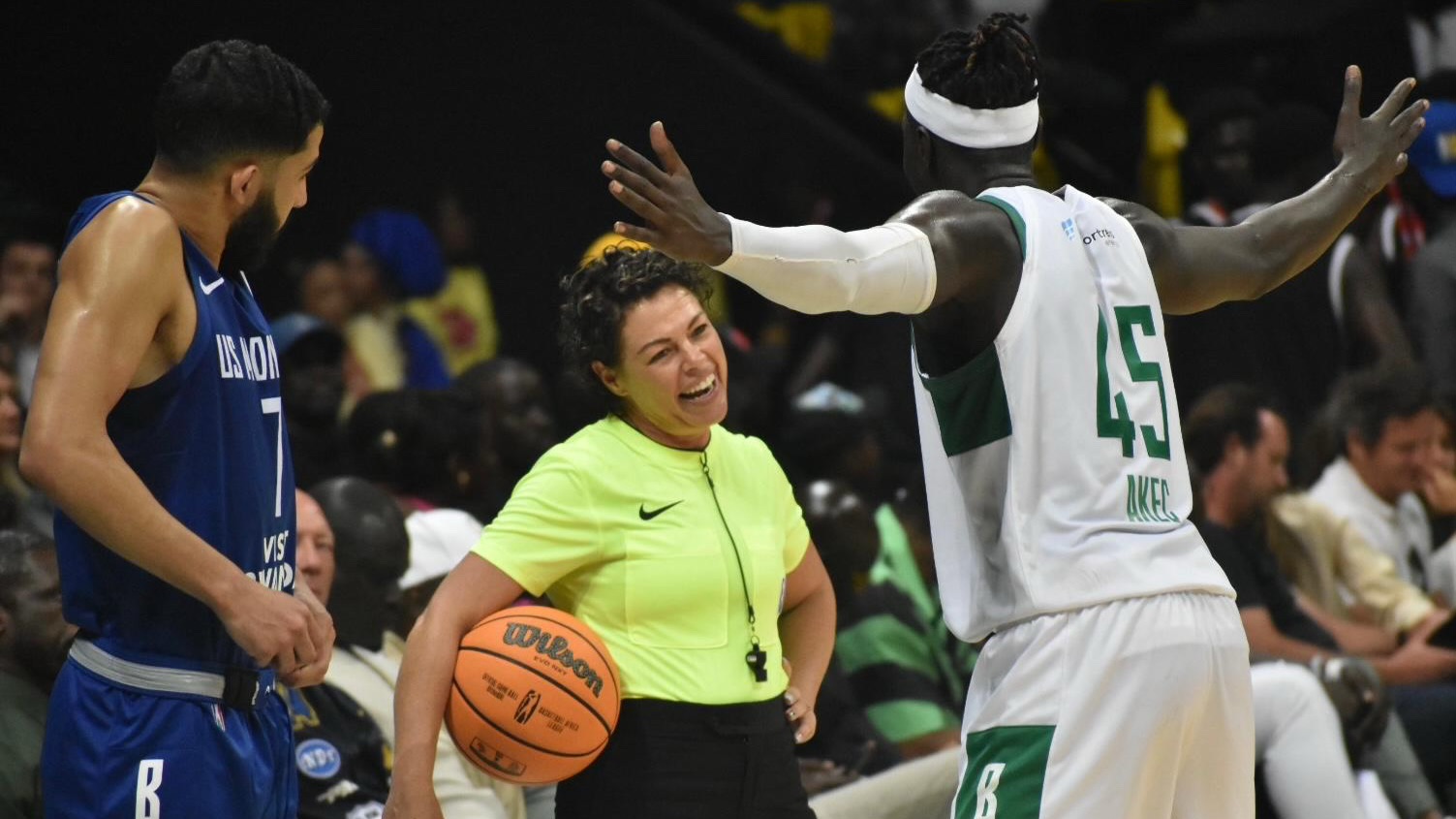FIBA Africa is committed to making basketball as inclusive and diverse as possible in Africa and how better to do it than to have that mandate on the officiating side. We had an exclusive interview with renown referee and role model, Natascha Onono, for a one-on-one on her view of the game from behind the whistle.
Last Updated on
May 20, 2025
.jpg)

She started as a basketball player, but due to a lack of technical development and an unwavering hunger for fairness, she stepped in to officiate her first game when still in high school. There was no referee at a central place in Pretoria. She was 14, and the U19 boys needed a ref, so she stepped in. With very little knowledge, she only had fairness and consistency to go with, and that moment birthed the start of what would become an illustrious career.

Three years later, she took up her first training to officially start this journey of officiating. A referee is essential to the game of basketball as they maintain the discipline of the game and help the game progress. However, they are most important because they are the people directly responsible for enforcing and upholding the rules of the game. Basketball is divided into two categories: running and wheelchair.
Natascha Onono is well respected in both categories and internationally recognized for her knowledge and impartiality. The rules are almost the same in both categories, but the only difference is the angle at which one officiates—with running basketball, it is at eye level. Still, wheelchair basketball is more on the floor level, so one must adjust.

We delved into the scenes behind the whistle and what some fans do not realize about referees. While we have our biases as fans, we have to remain impartial and apply the rules of basketball, but even then, we ignore many discrepancies.
“One of the main principles of officiating is advantage/disadvantage. The defender can cause contact but did that contact cause any advantage or disadvantage? If it is viewed as marginal, you can let it go unless it is very obvious."
We divide the game into two sections. The first 38 minutes and the last two minutes where the philosophy changes because it is now crunch time. The philosophy of advantage/disadvantage falls away and we have to call by the book.

Natascha recently officiated at the first-ever BAL Conference in Morocco during the Kalahari Conference. This is just one prestigious honor to the many she has had, such as the Sahara Conference in Senegal, the U17 FIBA World Cup, the Wheelchair Basketball World Cup, the Paralympic Qualifiers and many more. Despite these great honors, her legacy and perspective make a bigger impact. She strives for fairness regardless of the level, U10 or BAL.
She sees herself as part of the movement breaking the social norm in sports. In a world where men dominate the sports scene, she and many like her are finding ways to disrupt that flow.
“I see myself as a role model for women. I have two girls, so for me, it is a big lesson to them and other girls that they can change the narrative as I am officiating at this level and it is showcased on ESPN,” she says.

Her professional demeanor on the court does not mean that she lacks the human side of life. That is where she wants to make the biggest impact, using basketball as a vehicle for that impact. She says that the ability of a referee to 'switch off' their emotions and stay impartial will get them to ascend to higher levels. Off the court, she is a coffee shop and event space owner in Pretoria, but she dedicates herself to her family first.
“I belong to my family as first a wife and mother. I put a lot of effort into not being a basketball statistic. I do not want to lose my loved ones because of my love for basketball. I want to keep my family close especially because I travel a lot.”
Natascha's legacy is far from written, and she continues to blaze a trail for women in South Africa and Africa. She wants to be remembered by the following three words: professional, fair, and dependable. We know her for her work on the court but admire and respect her for her impact off the court.
[Photography Courtesy of Natascha Onono]